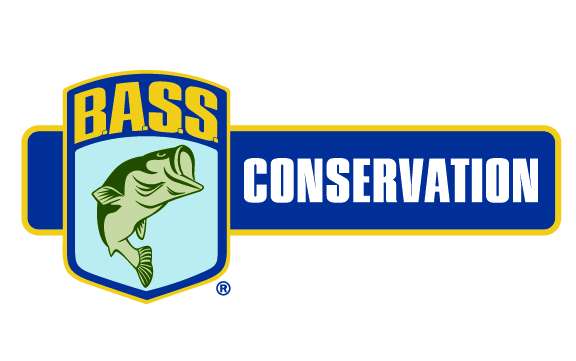
Belonging to the Bass Anglers Sportsman Society, means more than simply being a member in an organization of bass anglers. The Society means more. Since the early 1970s, B.A.S.S. has taken an active role in addressing aquatic resource issues. In the early years, it meant taking legal action against industries polluting our nation’s waterways. Today, the agenda has grown more complex. B.A.S.S. now works together, often on parallel paths, with a cadre of partner organizations such as the American Sportfishing Association, the Congressional Sportsmen’s Foundation and the Theodore Roosevelt Conservation Partnership to protect aquatic resources and the sport of bass fishing. The backbone of our effort is founded on a grass-roots core of B.A.S.S. members and those belonging to B.A.S.S. Nation clubs across the country. They are the stewards of our natural resources, always on the lookout for issues that have local, regional and even national significance.
The B.A.S.S. Conservation Agenda focuses on these key elements:
Scientific fishery management
B.A.S.S. Conservation supports sound, science-based fishery management. The National Conservation Director and our B.A.S.S. Nation state conservation directors work with federal and state agencies so bass anglers have a seat at the table when management decisions are being made. B.A.S.S. Conservation is an active participant on the Sport Fishing & Boating Partnership Council, on committees of the Association of Fish & Wildlife Agencies and the American Fisheries Society as well as other professional associations that focus on resource policy and fishery management.
Habitat
Aquatic habitat is degrading, both from natural aging and because of man-induced changes. Without quality habitat, the future of recreational angling and vital links in aquatic ecosystems are lost. The issues are complex: water quality, water quantity, nutrient input, sedimentation and reservoir aging are just a few. B.A.S.S. Conservation works with organizations like the Friends of Reservoirs Foundation to support local habitat enhancement projects. At the national policy level, B.A.S.S. is engaged with our partners in Washington, DC to encourage the federal government to enact laws to protect, restore and enhance aquatic habitat. Local bass clubs, state agencies and other stakeholders join in cooperative efforts to tackle specific habitat issues, often with support from B.A.S.S. Conservation corporate partners such as AFTCO, Yamaha and others who provide grant funding for these efforts.
Aquatic invasive species
Snakeheads, zebra mussels, round gobies, hydrilla, Asian carp. Aquatic invasive species (AIS) that threaten to destroy or imperil aquatic ecosystems across the country. As the problem of AIS spreads, B.A.S.S. Conservation has joined a growing coalition of concerned policy makers, agencies and scientists to regulate importation of exotics and stop their illegal intentional or accidental introduction into the nation’s waters. At the same time, B.A.S.S. Nation clubs actively promote the practice of “Clean, Drain and Dry” to prevent the spread of AIS, helping educate other anglers and recreational boaters about these threats to our waters. We use our media platforms to help educate and inform about threats and encourage anglers to get involved in the fight.
Aquatic vegetation management
Invasive aquatic plants often grow out of control and require management. Species such as salvinia, hyacinth and water lettuce can choke out navigation channels and smother beneficial native plants. Hydrilla and Eurasian watermilfoil are perceived by as ideal for fish and waterfowl, and in moderate quantities, they do provide quality habitat. However, when overabundant or in the wrong locations, they become a nuisance to other water users like boaters and lakeshore homeowners, to economic threats to industry and municipal drinking water suppliers. Ideally, management rather than eradication of aquatic vegetation is the goal – striking a balance for the ecosystem and users alike. B.A.S.S. Conservation works with vegetation management experts such as the Aquatic Plant Management Society and Aquatic Ecosystem Restoration Foundation to facilitate discussion among all user groups. Again, that seat at the table idea. We also help facilitate B.A.S.S. Nation/state agency cooperative projects to establish diverse native plant communities in lieu of exotic invasive species.
Angler access
A fishing trip begins with a place to launch the boat or shoreline to cast a line. Yet access to public waterways has suffered. Demands on public drinking water supplies, security concerns, selfish property owners and lake associations, restrictive regulations around marinas and docks or over AIS issues, closed or restricted access sites merely scratch the surface of why anglers are having a more difficult time accessing public waters. Through a grass-roots approach with B.A.S.S. Nation clubs, angler and boater rights are being secured. Working with organizations such as the National Marine Manufacturers Association and the American Sportfishing Association, the boating and fishing industry trade associations, B.A.S.S. Conservation is battling to keep our waters accessible to the public.
Tournament fish care
Early on, B.A.S.S. recognized that bass are a renewable resource and developed the catch-and-release ethic that is the standard among virtually all tournaments. B.A.S.S. published the booklet Keeping Bass Alive, A Guidebook for Tournament Anglers and Organizers in 2003 and it quickly became the source of fish-care information in the bass fishing world. Continuing to raise the bar in tournament fish care, B.A.S.S. Conservation supports scientific research focusing care of tournament-caught bass. The latest practices and improvements are rolled out through the B.A.S.S. Nation in B.A.S.S.Times Magazine and on Bassmaster.com, educating anglers about how to better handle fish they intend to release. B.A.S.S. Conservation extends its outreach to the general angling public through our media platforms to ensure a positive perception of bass fishing and tournament angling.
B.A.S.S. is more…
When you join B.A.S.S., you get more than just a magazine and a membership card. You become part of that Society and are supporting more than 50 years of natural resource conservation. Devoted to the challenges that lie ahead, B.A.S.S. Conservation continues to work on behalf of our members and the aquatic resources we all value – and we encourage you to get involved. To learn how, contact your state’s B.A.S.S. Nation conservation director from this list.
For more information, contact B.A.S.S. National Conservation Director, Gene Gilliland at ggilliland@bassmaster.com.
